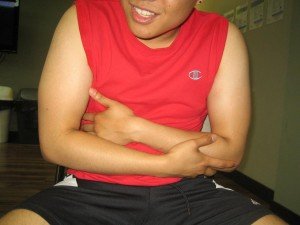Food poisoning is a condition that develops after consuming contaminated food. In most cases, it is not serious and many get better in a span of a few days without treatment. In most cases of food poisoning, the food is usually contaminated by bacteria such as Escherichia coli or salmonella or even virus such as norovirus.
Signs and symptoms
The indications of food poisoning typically start within 1-2 days after consumption of contaminated food, but they can also start at any point between a few hours and several weeks later. The main symptoms include the following:
- Nausea and vomiting
- Diarrhea that might contain mucus or blood

Many individuals with food poisoning recover at home and do not require any specific treatment, but there are cases in which consulting a doctor is required. - Abdominal cramps
- Appetite loss
- Weakness and lack of energy
- Fever and chills
- Muscle aches
In most cases, these symptoms typically pass within a few days and full recovery is achieved.
Managing food poisoning
Many individuals with food poisoning recover at home and do not require any specific treatment, but there are cases in which consulting a doctor is required. Until the individual feels better, he/she must take time to rest and drink fluids to prevent dehydration from developing.
It is also recommended to eat but try small, light meals initially and stick with bland foods such as crackers, toast, rice and bananas until he/she starts to feel better. Oral rehydration solutions are recommended for vulnerable individuals such as the elderly and those with other health conditions.
When to consult a doctor
A doctor should be consulted if the individual with food poisoning experiences the following:
- The symptoms become severe such as inability to keep down fluids due to persistent vomiting
- The symptoms do not show signs of improvement after a few days
- The indications of severe dehydration are present such as rapid heartbeat, confusion, passing little or no urine and sunken eyes
- Pregnant
- Individual is over 60 years old
- An infant or toddler with food poisoning
- Those who have long-term underlying health conditions such as heart valve disease, inflammatory bowel disease, kidney disease or diabetes.
- Those who have weakened immune system due to cancer treatment, medications or HIV
In such cases, the doctor might request a stool sample to be analyzed. Antibiotics are also prescribed or might even suggest hospitalization for close monitoring.
How is food contaminated?
Always bear in mind that food can become contaminated ay any phase during the production, processing or cooking. Food can become contaminated by the following:
- Food not cooked thoroughly especially meat
- Incorrect storage of food that requires chilling at below 5 degrees C
- Leaving food out in the open for a long time at warm temperatures
- Insufficient reheating of previously cooked food
- Food was contaminated by a sick individual or one who has dirty hands
- Consuming food that is way past the “use by” date
- Spread of bacteria between contaminated foods
Take note that foods that are highly prone to contamination if not properly handled, cooked or stored include raw eggs, raw poultry and meat, raw shellfish, ready-to-eat meals and unpasteurized milk.

